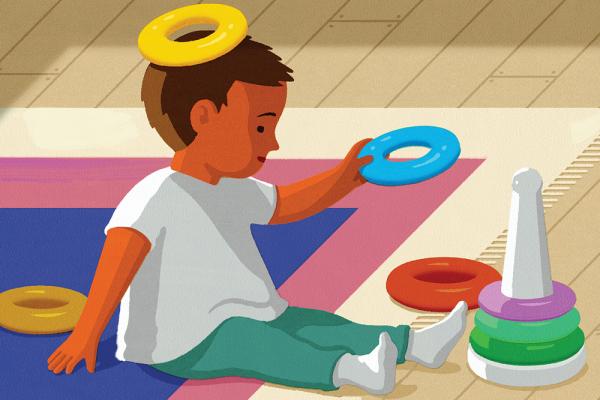ENSURING THAT EVERY child can realize their full potential is a civic and faith imperative. Yet millions of children in the United States are having their futures sabotaged due to a lack of care, stimulation, and nutrition between birth and age 3. These three years, often referred to as the period of early child development, or ECD, are the most fragile and formative because most of a child’s brain is developed during this period. During the first few years of life, a child’s brain forms more than a million neural pathways every second and grows to 90 percent of the size of an adult’s brain by age 6. As a result, this period can determine whether a child realizes their full potential. The things young children learn, the experiences they have (and the amount of damaging stress to the brain they suffer), and the love and care (or lack thereof) they receive can all have an outsized impact on their lifelong mental, emotional, and physical health.
During my time working at World Vision and the World Bank, I became passionate about the crisis of ECD in low- and middle-income countries, a cause that remains urgent. However, I have become increasingly convicted about the imperative to also address the child development crisis in the U.S. Tragically, the U.S. is not doing well by its youngest generation, especially when compared to similarly wealthy nations. More than 9 million children in the U.S. face food insecurity, which hampers their healthy brain development, and in the last year, 1 in 7 children experienced child abuse or neglect. Without affordable child care, millions of children become at risk for “adverse childhood experiences” that could lead to debilitating impacts on their health and well-being.
Read the Full Article

